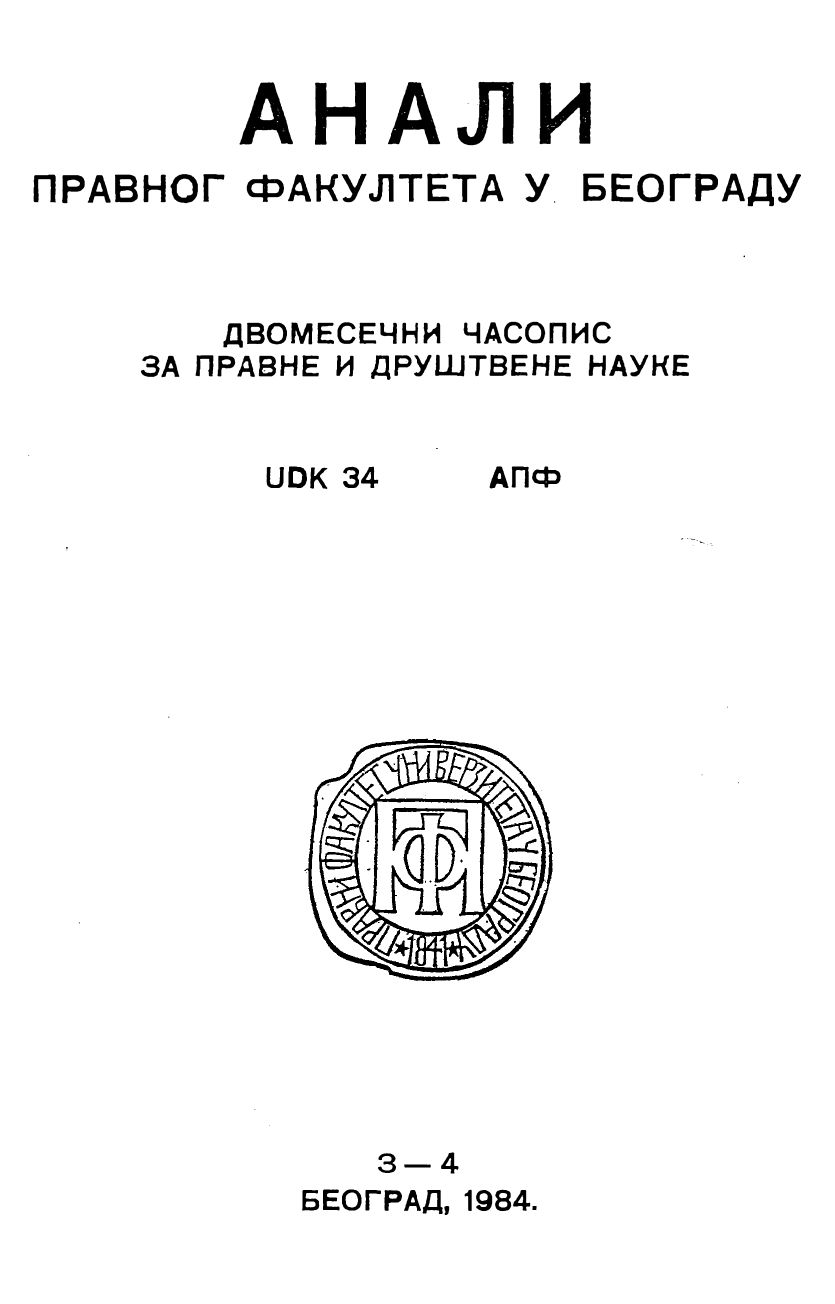УСТАВНИ ПОЛОЖАЈ САВЕЗНОГ ИЗВРШНОГ ВЕЋА
THE CONSTITUTIONAL POSITION OF THE FEDERAL EXECUTIVE COUNCIL
Author(s): Pavle NikolićSubject(s): Law, Constitution, Jurisprudence, Constitutional Law
Published by: Правни факултет Универзитета у Београду
Summary/Abstract: In accordance with the conception of the assembly system, the Federal Executive Council has been established as the executive organ of the Assembly of the S.F.R. Yougoslavia. But, the constitutional provisions have not been thoroughly consistent in this respect. The reasons for this are mainly based on the aspiration that the Council should be established as a homogeneous body, functioning as an operative and efficient orcan; however, the specific character of the Yougoslav federalism and the structure of relations in the federation also made impact on the nature of the Council. Yet, the fact that the Council differs fom the classical institution of government is not in dispute. There are two significant elements determining the nature of the Council as the executive organ of the Assembly and its position in the Yugoslav political system. The first element is the function of th Council. In accordance with the conception of the asembly system of government and the principle of. the democratic unity of government, the Council has been assigned the political and executive function. Within that function, of particular signi ficance is that rather restricted participation of the Council in the performance of the normative function — the passing of. by-laws —- normative acts for the enforcement of federal law. The second element represents the relations between the Council and the Assembly (namely, responsibility to the Assembly, constitutionality and legality in the performance of the Council’s duties, Assembly’s supervision over its everydav work, the right of the Assembly to prononce null and void all unconstitutional and illegal normative acts passed by the Council, election (appointment) adn dismissal by the Assembly etc.... on the othe’- hand, it is the right of the Council to collectively resign and to demand of the Assembly io vote on the question of confidence to it). It should mentioned here the procedure of election (appointment) of the members of the Council contains certain elements of the procedure of election, (appointment) of the classical Cabinet. The relations between the Council and the Presidency of th S.F.R. of Yugoslavia give room for certain of the Presidency on the Council, in consequence of the role of role of this oigan in the federative organization. The structure of the Federal Executive Council contains certain elements of the structure of the classical Cabinet (the Council of ministers), with regard to the personell links between the Council and the federal administration. This fact undoubtedly strengthens its role and position. In practice, the Council has a rather strong role and position, but has not transformed into a policy-making organ.
Journal: Анали Правног факултета у Београду
- Issue Year: 32/1984
- Issue No: 3-4
- Page Range: 392-406
- Page Count: 15
- Language: Serbian

